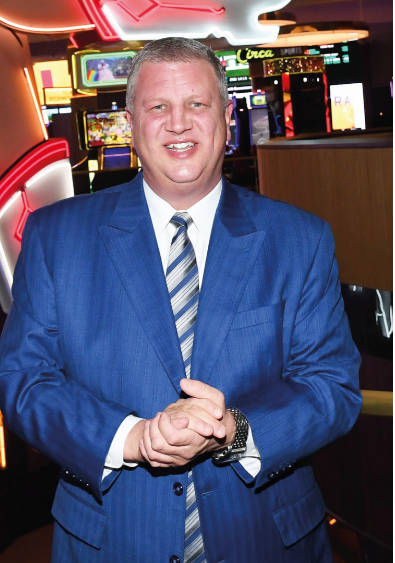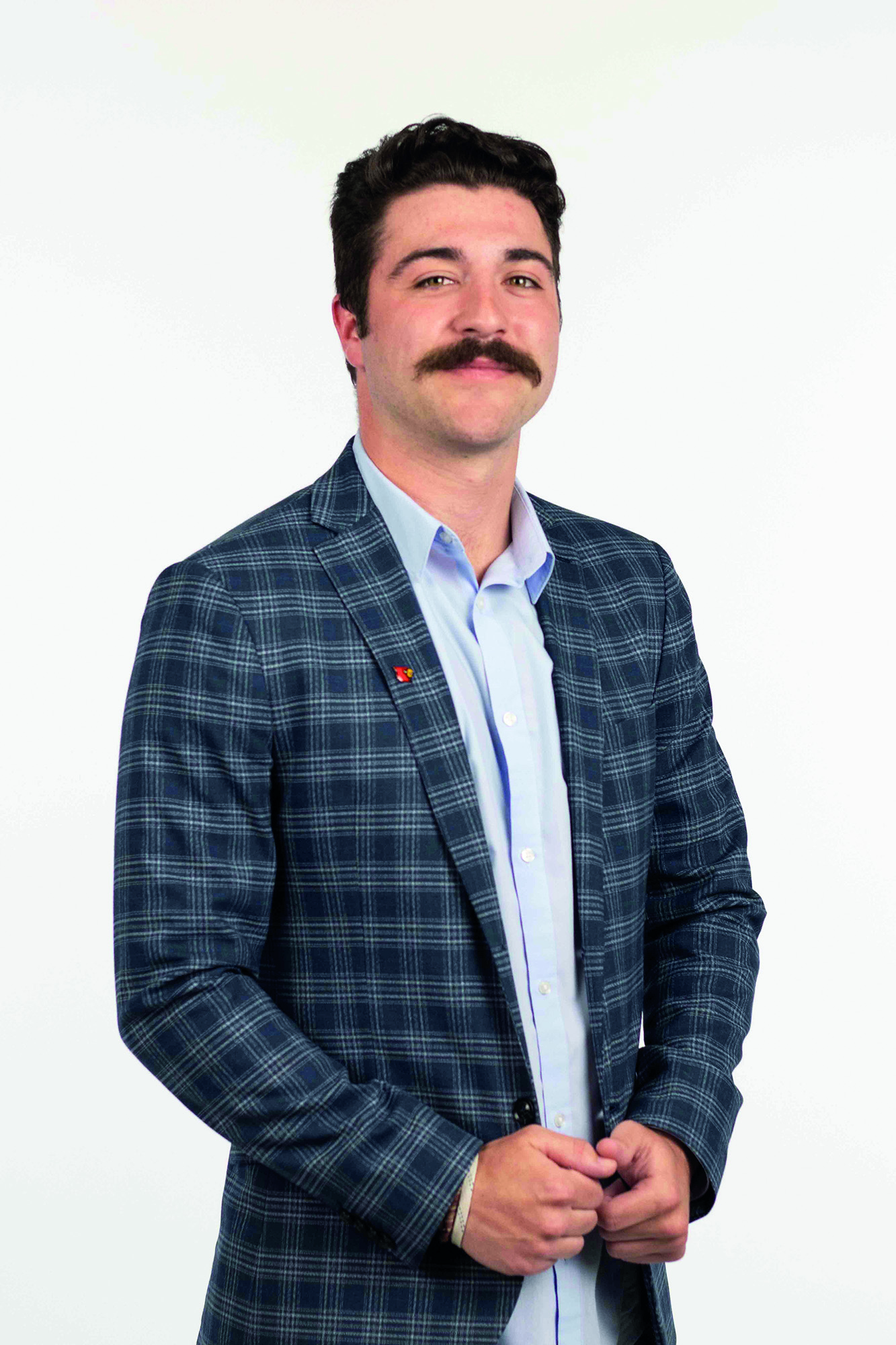US sports betting: What’s your edge?

Welcome, one and all, to 2024, the year PASPA’s downfall turns six. While it’s an important milestone, PASPA seems more and more like a distant image in our collective rear-view mirrors.
The proverbial talk of the town is, instead, the next era of sports betting. We’ve got long-time leaders, new competitors and rebranded standbys making a play for pole position.
Behind the scenes, suppliers and third-party services are moulding the next phase of US sportsbooks. One question emerges: what will US sports betting’s next evolution look like?
Experts spanning various parts of the sports betting world – operators, suppliers and more – chimed in with their outlook for a new era in US sports betting.
Spotlight on the new and novel
Circa Sports CEO Derek Stevens kicks things off, emphasising the relative youth of US sports betting.
“The one thing to me that stands out is that sports betting, as an industry, is still in its infancy stage,” Stevens says.
As sports betting expands, operators tend to find their niche.

“There’s a home for every sports bettor, depending on their preferences,” Stevens continues, comparing sportsbooks to the restaurant industry. “Say you go to a new city and want to grab a bite. There’s a steakhouse, a seafood place, Italian, Chinese, Mexican and so on. There’s always something to suit your particular niche.”
Circa’s niche, according to Stevens, is a low-hold model that can take larger wagers than some competitors.
His points lead us right to the launchpad for any discussion of the next era of sports betting. Stakeholders on every side of the industry – B2B and B2C alike – must find their niche and offer something new to bettors.
US sports betting is now a crowded and rapidly expanding space. Carving out a niche with something novel is more important than ever.
Round the clock coverage
Jake Nowry, sales and business development manager at SIS Content Services, manages the company’s North American esports and fixed odds horse race betting presence.

Nowry says: “The primary way an operator can differentiate from the competition in the US market is by offering a diversified portfolio of 24/7 content.”
Naturally, this 24/7 coverage will include the usual suspects: football, basketball, baseball etc. It is by adding more specific content that sportsbooks can make a mark, according to Nowry.
“Look at esports, for example. We have an event-based sport simulation product similar to real-life soccer and basketball, utilising esoccer and basketball respectively. It’s an additional betting vertical specifically created to meet the need for sportsbooks and is nearly identical for players to bet on. The betting markets are the same as real soccer or basketball.”
Such offerings can fill gaps in markets, especially when popular sports are out of season.
New versions of old products
One of the defining factors of the past few years has been the advent of the same game parlay (SGP). Mark Nerenberg, COO of Simplebet, notes that SGPs and their kin have been a uniquely American success.
“The demand for the SGP from US consumers is far greater than anything overseas due to scoring and cadence in US sports,” Nerenberg says.

Simplebet focuses on micro-betting – markets that zoom in on a particular event such as a single pitch or drive – which Nerenberg says is somewhat similar to SGPs.
“Micro-betting is similar in that the demand is high and it is technically challenging to offer. Accurately pricing micro markets and keeping them available throughout the game is a necessity. We’ve been solving that problem, but there’s always room for improvement and differentiation.”
Nerenberg also thinks there’s more room for context when players engage with a bet. “Let customers make educated decisions,” he says, “by providing statistical trends, the current in-game situation etc. It’s difficult but necessary for a high-quality in-play experience.”
Offering something truly different
Travis Geiger, co-founder of WagerWire, wants to change sports betting “one couch at a time”.

He posits that the current social elements of sports betting – in-app groups, chats and the like – aren’t enough. And the core offering isn’t doing enough, either. “So many books are just spreadsheets with a different colour scheme,” Geiger says, “and people are catching on.”
WagerWire aims to solve this issue by allowing people to buy or sell bets in whole or in part. “We’re giving people the opportunity to play sports betting like a stock or crypto. It’s an asset.
“Tickets at big books get screenshotted and tweeted,” Geiger continues. “Bettors are asking their community ‘Should I cash out? Do you like this bet?’ and books aren’t invited to the conversation.” By treating bets more like a market, WagerWire brings operators in on those community moments and takes things a step further, allowing users to buy or sell portions of their bets.
Tailored to your customers
Shifting gears to the supplier side, OpenBet’s vice-president of platform products Sam Depoortere identifies one game-changer for sportsbooks.
“Customisation,” he says. “There are a lot of white label sportsbooks live in the marketplace right now which are very easy to set up, but gaining that competitive edge is difficult. This makes customisation a key way to differentiate. We know players tend to have more than one account across different operators and, ultimately, they will be attracted to place bets based on the unique products and features each operator can provide.”
All of these businesses, executives and products have one thing in common. They’re looking forward, analysing not only what sports betting is, but what it will be. With a sturdy stable of existing operators and some new challengers in play, the time is ripe for something different in a sea of sameness.
Mixed market madness
Of course, it’s all fine and dandy to discuss new products or services in a vacuum. The unfortunate reality is that, well, reality is unfortunate. The US sports betting arena is hardly an arena at all. It’s a subset of smaller venues, each with its own unique rules and regulations.
Naturally, the structure of US sports betting law is such that it’s practically nonexistent. The states individually legalise and regulate sports betting, which in turn leads to wildly different markets that, in some cases, share a border.

It’s a challenge to break through and stakeholders of all sorts must carefully consider if, when and where they offer their products.
“In general, it’s very hard and expensive to fight against sportsbooks with an established audience.” That’s Sam Depoortere of OpenBet again. “Media and marketing spend is essential to build brand recognition and visibility as there are a lot of existing operators offering a strong product with very high brand recognition.
“Legislation is a key factor,” he continues. “It’s interesting to see the progress with legislation happening in both Florida and California which could open up two of the largest states in the US to the sports betting industry. However, it’s currently very competitive in the US with the top three operators having 85% of the established markets in their hands.”
Maturity matters
Circa’s Stevens agrees. “The most significant factor is the regulatory environment,” he says of eyeing new markets for launch. “Competition is a close second, but the regulatory environment is the key thing.
“We’re running a low-hold model; some states might have a minimum win threshold that is in excess of what our model is. Tennessee is an example there. So is New York. When you run a low-hold model and you look at the New York regulatory environment, you know it’s not optimal for our model.”

Simplebet is live with numerous operators, including DraftKings, Bet365, Caesars and ESPN Bet. Through working with such partners, Nerenberg has developed an understanding of the challenges operators face in the US.
“For B2C operators, we have seen that entering established markets is more expensive and challenging when compared to breaking in during a new state launch. If you are entering a mature market you should probably feel strongly that you have some competitive advantage that will lead to desirable unit economics.”
Simplebet, for its part, is trying to carve out that advantage for its customers. “We enable unmatched market availability for user adoption and stickiness of micro betting,” Nerenberg says.
Nowry of SIS says: “Brand affinity is one of the most crucial aspects of building an audience and a strong following. It’s about a robust catalogue of content, more so than your competitors can offer.”
But for a company like SIS Content Services, market saturation is far more of an opportunity than an obstacle.
“We aim to have our content available on as many sportsbooks as possible,” Nowry says. “We want to be everywhere and make it easier for players to have more content to bet on, no matter which sportsbook they are using.”
Flexibility is the name of the game
In essence, sports betting 2.0 will be fuelled by changes based on what particular markets allow.
Flexibility, in other words, is the name of the game. For services like WagerWire, SIS and SimpleBet, market saturation and competition is a good thing. For operators, it’s a unique challenge.
In any market, though, there comes a need for two important factors that can’t be provided by a third party or be innovated in-house.
Trust and recognition
WagerWire’s Geiger puts things in simple terms. “I think that people don’t care what book they’re betting at, they just want it to work.
“They don’t want to be limited and they don’t want to be jerked around. Now, between those three things, there are very few operators that can accomplish all of them.”
He continues: “Trust is always more important than a name. Sportsbooks can do more to engender trust with their customers. Even books with a big brand name can work harder to build that trust. Make it easy to deposit and place bets. These are the basic things. It’s not some sort of chess game. They haven’t even won the checkers game they’re playing yet.”
OpenBet’s Depoortere concurs. “Name recognition is important, but having a proven track record is more important. You must prove to your customers that you can deliver time and again. We handle a massive load with zero downtime. Our stability is incredibly important; our customers rely on us.”

However Stevens puts more emphasis on name recognition. “Nobody’s got much of a business if nobody knows who you are,” he says.
Earning that reputation, though, is a tough task. “Some brands, like the FanDuel and DraftKings types, they value being first to market. They spend a lot to acquire initial customers and they have lots of great features. I’m never going to say anything bad about another book’s model. Some operations suit different types of players.”
This competition, which yields different approaches to recognition, bodes well for players, according to Stevens. “It’s good for everyone. The industry will grow and players will be happier.”
Bringing it all together
The lesson here is simple: sports betting grows more and more complex. Factors like regulation, trust and new ways to bet will continue to disrupt the industry and redefine what the next era of the industry looks like.
Sportsbooks must therefore strike a balance between building trust and trying new things, offering new products that will keep players engaged on their platform. It’s easier said than done, of course, but the industry shows no signs of slowing down. Change is on the way.
